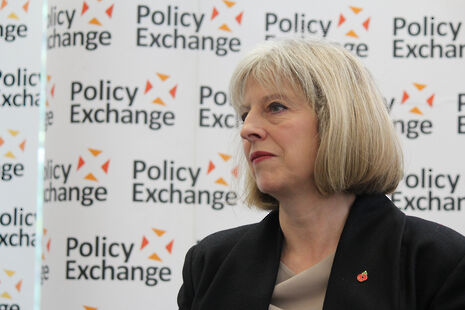Endless talk of Brexit is bad for democracy
Associate Editor Jack Higgins warns of the dangers of getting bored of Brexit

In his talk as part of the ‘Brexit Week’ currently running at the Faculty of Law, politics academic Chris Bickerton stressed one of the key positives of leaving the EU: that politicians can no longer use it as a smokescreen to avoid being held accountable by the British electorate. When I interviewed him earlier this year, he stressed that breaking away from Europe would put an end to “the political class looking to the EU and saying: ‘this is Brussels’ fault’”.
This may well be true when we finally leave, but at the moment Brexit itself has become the very smokescreen it was supposed to banish. The vote was 120 days ago, yet not a single one of those days has passed without the subject being plastered across every news outlet. As I write, in the last 24 hours The Guardian alone has published at least 29 articles referencing Brexit. And that’s in just one publication, six months before we’ve even triggered Article 50.
This is not to say that Brexit isn’t important. I’d be a fool to say that we should be ignoring the biggest political and economic issue of modern British history. However, at a time when the government is developing a ‘Brexit strategy’ – or so it claims – it is important to remember that it really isn’t the sole job of May’s government, contrary to what headlines suggest.
And this is particularly significant given that there are arguably more important debates to be had at the moment: how do we, amid continued talk of crisis, keep the NHS alive? Is austerity working? And how do we solve the crippling housing shortage in the UK?
If these issues are simply buried beneath the perpetual cacophony of Brexit noise – and I recognise the irony of this very piece – it may cause some to simply switch off, which is self-evidently bad when it comes to holding the government to account.
And this argument isn’t just the conjecture of a disillusioned student. For example, the BBC recently reported that even some Tories at their own conference were said to be suffering from ‘Brexit fatigue’ due to the “endless speculation about what’s going to happen next”. If a bunch who tend to be particularly keen for prattling on about politics are bored, what hope is there for the rest of us?
 News / SU stops offering student discounts8 January 2026
News / SU stops offering student discounts8 January 2026 News / Uni-linked firms rank among Cambridgeshire’s largest7 January 2026
News / Uni-linked firms rank among Cambridgeshire’s largest7 January 2026 Comment / Plastic pubs: the problem with Cambridge alehouses 5 January 2026
Comment / Plastic pubs: the problem with Cambridge alehouses 5 January 2026 News / New movement ‘Cambridge is Chopped’ launched to fight against hate crime7 January 2026
News / New movement ‘Cambridge is Chopped’ launched to fight against hate crime7 January 2026 Comment / What happened to men at Cambridge?31 December 2025
Comment / What happened to men at Cambridge?31 December 2025









